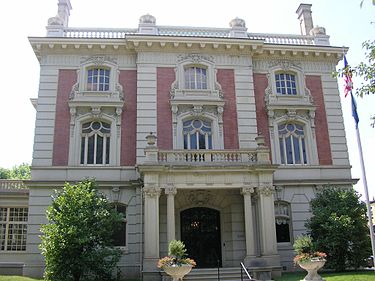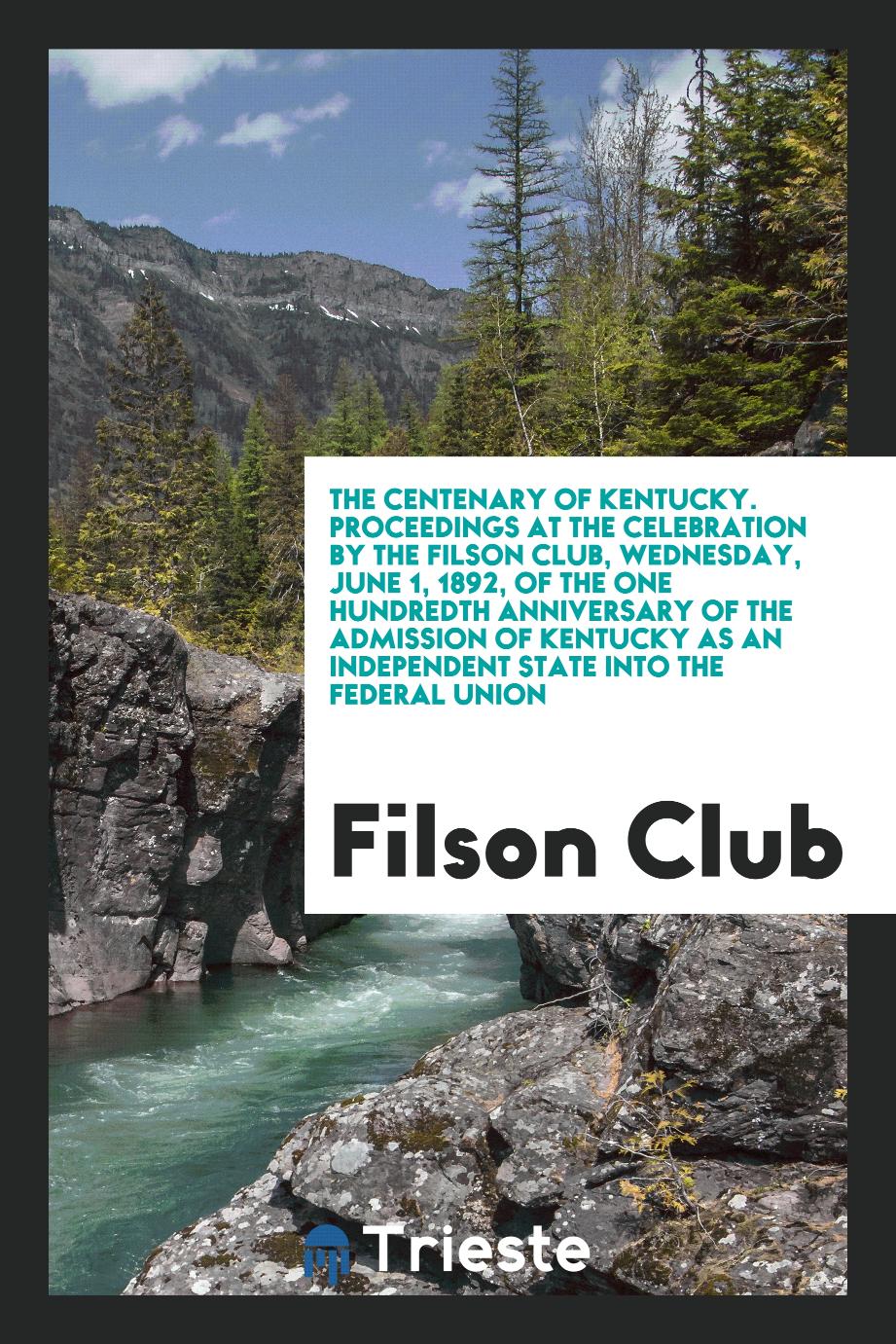
Filson Club
Filson's Historical Society (originally called Filson's Club) is a historic society located in the Old Louisville area of Louisville, Kentucky. The organization was founded in 1884 and named after the early Kentucky explorer John Filson, who wrote the book “Discovery, Settlement, and the Current State of Kentucky,” which included one of the first state maps. Filson's extensive collections are concentrated in Kentucky, the Upper South, and the Ohio River Valley. His research opportunities include a collection of manuscripts, as well as a library that includes rare books, periodicals, maps, and other published materials. Filson also maintains a small museum. One of the museum’s distinctive possessions is part of the trunk of an American beech tree with a carved legend “D. Boone killed the bar [killed the bear] in 1803. " Filson's main founder was Colonel Reuben T. Darrett. After retiring from his legal practice, Durrett devoted his attention to collecting and preserving the history of Kentucky. With an interest in manuscripts, published materials, portraits, and artifacts, Darrett’s collecting habits formed the basis of what Filson collects to this day. In 1884, Durrett and nine other prominent Louisville men, including General Basil W. Duke, Judge Alexander Papa Humphrey, and Richard H. Collins, founded the Filson Club as an organization to preserve Kentucky's past. For nearly thirty years, Reuben Darrett served as President Filson. Filson's collections were kept in Durrett's house along with his personal library. Although this arrangement was initially convenient, it proved to be problematic as Darrett got older. In the early 1910s, Darrett suffered a series of blows, and when his health deteriorated, he began to worry about the fate of his collection. In 1912, he sold his collection to the University of Chicago. However, most of the Filson holdings that were not part of the purchase also went to Chicago. Filson was forced to start again.

